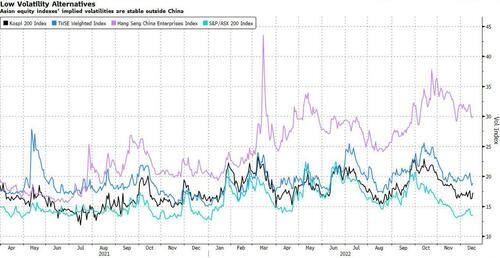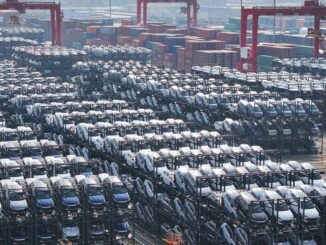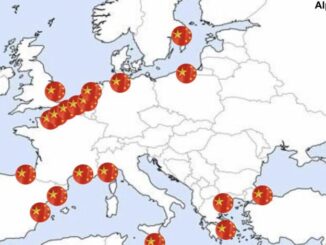
By Hideyuki Sano, Bloomberg Markets Live reporter and strategist
Investors that want to bet on China’s economic reopening but are still concerned about the nation’s geopolitical risks and market volatility are finding better alternatives elsewhere in Asia.
The idea is that if Asia-Pacific’s No. 1 economy rebounds, it will also benefit the region’s big exporters to China like South Korea and Taiwan, as well as major commodity producers such as Australia and Indonesia. And investors in those areas won’t have to worry much about China risks such as sudden regulatory crackdowns, the property market’s debt turmoil, and the possibility of escalating military tensions with neighbors.
“If one assumes the Chinese economy will improve, you can get similar benefits by investing in countries that have close ties with China,” said Hiroshi Matsumoto, senior client portfolio manager at Pictet Asset Management. The Swiss asset manager sees Germany in addition to Asian countries as getting a special boost from China opening up again.
Goldman Sachs says emerging- market equities and commodities, especially copper, are among the largest beneficiaries from China reopening, adjusted for volatility.
The MSCI Emerging Markets Index may rise to 1,080, a gain of about 13% from the current level, Goldman strategists Dominic Wilson and Vickie Chang estimated in a research note dated Dec. 2. That’s smaller than the potential gain of 17% in the Hang Seng China Enterprises Index but it’s more than the 7.6% upside seen for the US S&P 500.
A reopened China would require more commodity imports to power its massive economic engine, good news for resource-rich countries like Australia and Indonesia. “If China does reopen in a big way, without major headwinds, I think Indonesia and Australia become a lot more attractive,” said Charu Chanana, a senior strategist at Saxo Capital Markets.
Compared with the wild moves in Chinese shares, Asian equities elsewhere are much less volatile, meaning that investors get better risk-adjusted returns. Three-month implied volatilities for the Hang Seng China Enterprises Index stood at 30 while those for the Taiwanese, Korean and Australian benchmarks were 19, 17 and 14 respectively.
Meeting to set economic policy priorities for 2023, Chinese leaders including President Xi Jinping said restoring and expanding consumption should “take precedence.” That suggests policy makers will take more steps to support the economy, which is facing near-term risks from the latest surges in Covid cases.
Hopes that China will open its international borders may help tourism-related shares in Asian countries from Japan to Thailand, where Chinese tourists made up for about a quarter to a third of international arrivals. If those travelers return to Thailand sooner than expected, that may help lift the baht by improving the country’s current-account balance, said Nuttachart Mekmasin, analyst at Trinity Securities in Bangkok.
Loading…



